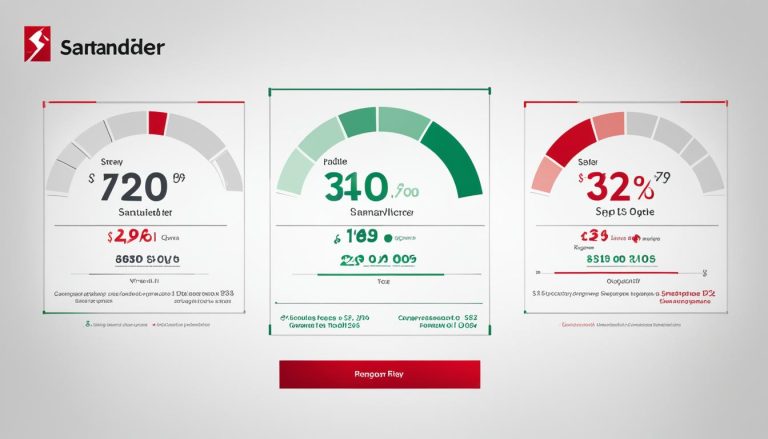I sit here, looking at the walls that once felt like home. Now, they seem different. The laughter, love, and life we shared are now tainted by betrayal. My husband bringing his girlfriend into our home feels like a deep wound.
If you’re facing a similar situation, you’re not alone. The legal and personal issues can be overwhelming. But, with the right advice, you can get through this. This article will help you understand your rights and offer support during this tough time.
Understanding Your Rights to the Marital Home
When you separate from your partner, the rights to your shared home become a central concern. These rights can vary a lot, depending on if you’re married, in a civil partnership, or just living together. It’s important to know what your rights are.
Legal Rights Based on Marital Status
For married couples or those in civil partnerships, both have a legal right to stay in the home. This is true even if only one name is on the deed or tenancy agreement. This right stays until a divorce or separation agreement changes things. Cohabiting couples have a harder time. If only one name is on the documents, the other might not have many rights. But, they could still have some rights if they’ve helped pay for the property.
Ownership and Tenancy Considerations
It’s key to understand the legal ownership and tenancy of the home. You can protect your interests by registering your matrimonial home rights with the HM Land Registry. This stops your partner from selling or remortgaging the property without your say-so. But, if the home is owned jointly or the rights aren’t registered, things get tricky. In such cases, getting legal advice is a good idea.
Dealing with rights to the marital home can be tough. But, getting professional legal advice can help protect your interests during this tough time.

Can My Husband Moved His Girlfriend Into Our House UK?
If your ex-partner wants to bring a new partner into your shared home, it depends on who owns the house and your marital status. For those who are married or in civil partnerships, big decisions about the home need both partners’ agreement. This move can be hard emotionally. It’s important to think about how it affects any children and the practicalities of living together.
Marital Home Ownership and Legal Rights
Deciding who has rights to the home can be tricky, especially if it’s owned jointly or one partner has a stronger claim. Married or civil partners usually have equal rights to the home, even if only one name is on the deeds. So, your ex-partner can’t just move someone new in without your say-so.
But, for unmarried couples who shared a home, it’s different. If your ex-partner owns the property, they might let a new partner move in, even if you lived there. You might need legal advice to see what you can do next.
Emotional Impact and Practical Considerations
Having an ex-partner’s new partner move in can be tough emotionally. It’s hard on children, who may feel their home is changing. It’s key to think about how this affects your family and support your kids through this tough time.
Living with a new partner can make things complicated. You might have issues with space, privacy, and who does what around the house. Talking things through and finding common ground is important. Getting help from a mediator or a lawyer could be a good idea.
| Statistic | Value |
|---|---|
| Number of people helped by UK’s largest divorce site since 2007 | Over 1 million |
| Cost of financial mediation services | Starting from £299 |
| Cost of Consent Orders for defining asset division | Starting from £359 |
| Cost of court support services for fair divorce financial settlement without a solicitor | Starting from £299 |
Moving an ex-partner’s new partner into a shared home is complex, legally and emotionally. Knowing your rights, thinking about your children, and getting expert advice are key to handling this situation well.

Navigating Emotional Challenges of Shared Living Spaces
When an ex-partner moves a new partner into a shared home, it can be tough, both legally and emotionally. It’s key to think about how it affects any children and the day-to-day living together. Having a new partner in the home can shake up family life, making it hard for kids.
Impact on Children and Family Dynamics
Bringing a new partner into the family can deeply affect kids. They might feel lost, worried, or even let down. This can cause them to act out, feel sad, and have a hard time with the new person. It’s vital to focus on the kids’ well-being and try to lessen the upset they face.
Practicalities of Cohabitation During Separation
Living together while separated brings its own set of challenges, like sharing space, chores, and setting boundaries. It’s important to set clear rules, schedules, and ways to talk to each other. This can help keep things calm. Getting family counselling can also be a big help in dealing with these tough times.

The emotional effects of living together during a split can be big for everyone, especially kids. It’s key to put everyone’s well-being first and get help from experts to get through this tricky time.
Seeking Legal Advice and Guidance
If you’re unsure about your rights to your home or worry about an ex moving someone new in, getting legal advice is key. Refuge offers AI-driven legal help suited to your needs. Their experts explain your rights and what steps to take next. Dealing with separation is tough, and expert legal advice is crucial for protecting your rights and meeting your needs.
Importance of Professional Legal Counsel
Getting legal advice is vital for handling complex issues like separation, divorce, and property rights. A skilled lawyer gives you the support and advice you need to make smart choices and protect your interests. They explain the laws, your rights, and the options you have.
- Professional legal counsel helps protect your rights by navigating the legal system.
- They guide you through legal options and arrangements, including court proceedings if needed.
- With their knowledge, you can make better decisions about what to do next.
- Legal experts offer emotional support and act as a trusted advisor during tough times.
Getting legal advice early can prevent problems and lead to a better outcome in separation or divorce. Issues like the family home, child custody, or financial settlements can be complex. Professional legal advice is key to protecting your rights and interests.

Negotiating Agreements and Boundaries
When you’re going through a tough time like a separation or divorce, finding a solution that respects everyone’s needs is key. This could mean setting a timeline for one person to leave or making clear rules for new partners. It’s all about finding a way that works for everyone.
Timelines and Arrangements for Moving Out
Having a clear plan for moving out can reduce stress and make the separation smoother, especially if there’s a new partner. You might consider:
- Setting a specific date or time frame for one person to leave the home
- Talking about who will pack, clean, and hand over the keys
- Deciding if the ex or new partner will move into the home
- Working out how to split shared items, furniture, and possessions
Being open and willing to compromise is vital. It helps everyone move forward more easily.
Setting clear boundaries is also important. This means deciding on personal spaces and shared areas. For example:
- Agreeing on which rooms or zones are personal
- Setting rules for common areas like the kitchen, living room, and bathrooms
- Talking about how new partners can be involved
- Creating rules for communication, visits, and staying overnight
By making these agreements, both sides can live together more peacefully during this hard time. It’s about respecting each other, making sure everyone’s okay, and thinking of any kids involved.

Exploring Legal Options and Remedies
Dealing with the aftermath of a separation is tough, especially when it involves shared homes and new partners. You have rights and options to consider. Contend’s AI-driven platform offers quick, reliable legal advice. This helps you understand your situation and move forward with confidence.
Contend can help whether you want to know your legal rights, negotiate an agreement, or just need support. The number of cohabiting couples in the UK has jumped from 1.5 million in 1996 to about 3.6 million in 2021. This shows more couples are choosing not to get legally married.
Many think that unmarried couples in England and Wales get legal rights to each other’s stuff, like property, after a certain time together. But this isn’t true. Only those whose names are on the title deeds or who have a clear claim to the property can ask for a share if they separate without an agreement.
Just because one partner owns a property doesn’t mean they can kick the other out if they separate. Legal steps must be taken to figure out both parties’ rights. Even if a partner isn’t on the title, they might still claim a part of the property’s value if they’ve made mortgage payments, improved the home, or agreed to be financially tied to it.
When adding a partner to property ownership, you must choose between ‘joint tenants’ and ‘tenants in common’. This affects how ownership works if you separate or if one partner dies. If you pick ‘tenants in common’, making a ‘deed of trust’ or ‘declaration of trust’ is wise. This outlines each partner’s share to protect their interests if you separate.
Before moving in with someone, talk openly about your goals, finances, and legal stuff. Consider a cohabitation agreement and get legal advice. This ensures a smooth move and legal safety in owning a home together.
Contend’s AI-driven legal support can help you through these tricky legal issues. They guide you on your rights, options, and the best way to handle separation, divorce, or introducing a new partner to your marital home or shared home.
Conclusion
Separation and bringing a new partner into your home can feel overwhelming. But, you have rights and options. Knowing your legal rights and getting professional advice can help you feel more in control.
Organisations like Refuge and Contend offer support and AI-driven legal advice. They help with the emotional and practical parts of changing your living situation. With the right help, you can make choices that keep you safe and protect your interests.
It’s important to stay informed and stand up for your rights. Seek the resources you need for a fair outcome. Whether you’re separating, getting a divorce, or staying together, you can find a way that works for you.
You’re not facing this alone. With the right support, you can overcome the challenges. You’ll be ready to start a new chapter in your life, stronger and more prepared for the future.
FAQ
Can my husband move his girlfriend into our house in the UK?
It depends on if you’re married or in a civil partnership. If so, both of you have the right to stay in the home until you get a divorce or agree to separate. If you’re just living together, things get trickier. The person on the deed might have more rights. You’ll both need to agree on big decisions about the house.
What are the legal rights regarding the marital home during separation?
If you’re married or in a civil partnership, you both can stay in the home until you get a divorce or make a separation agreement. But if you’re just living together, the person with the deed might have more rights. You’ll need to talk and agree on what to do with the house.
How does the introduction of a new partner affect the shared living situation?
Bringing a new partner into the home can be tough, especially if you have kids. You’ll need to work out how to share the space, chores, and your personal space. This can help avoid more arguments during a tough time.
When should I seek legal advice regarding my rights to the shared home?
If you’re unsure about your rights to the home or if your ex might bring someone new in, get legal advice. Places like Refuge offer help and support. They can explain your rights and what you can do next.
How can I negotiate agreements and boundaries with my ex-partner regarding the shared home?
Talking things through and making agreements can help. You might work out a plan for one person to leave or set rules for new partners. This can reduce arguments and make separating easier.






